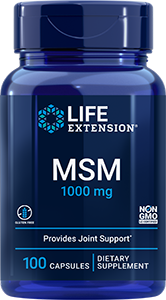- Science & Research
- Science News
- Newsletter
- 2013
- March 19

Newsletter
Newsletter
Stroke Risk Lower In Coffee And Tea Drinkers
Stroke risk lower in coffee and tea drinkers
Tuesday, March 19, 2013. An article published on March 14, 2013 in Stroke: Journal of the American Heart Association reveals a protective effect for green tea and coffee against stroke in middle-aged men and women. Yoshiro Kokubo, MD, PhD and associates analyzed data from 82,369 participants who were free of cancer or heart disease upon enrollment in the Japan Public Health Center-Based Study Cohort I and II. Dietary questionnaires administered at enrollment provided information on green tea and coffee consumption frequency. The subjects were followed for an average of 13 years, during which 3,425 strokes (including 1,964 cerebral infarctions, 1,001 intracerebral hemorrhages and 460 subarachnoid hemorrhages) and 910 coronary heart disease events occurred, resulting in a total of 4,335 cardiovascular disease events. In comparison with those whose tea drinking was categorized as seldom at less than once per month, drinking two to three cups green tea per day was associated with a 14% lower risk of stroke and drinking more than four cups per day with a 20% reduction. Among coffee consumers, drinking the beverage three to six times per week was associated with an 11% lower risk and consuming it once per day was associated with a 20% decrease compared to seldom drinkers. The risk was particularly significant for intracerebral hemorrhage, for which the adjusted risk was reduced by 35 percent among those who consumed at least four cups green tea per day. While total cardiovascular events were lower in association with increased tea or coffee intake, no significant association was observed for coronary heart disease. "This is the first large-scale study to examine the combined effects of both green tea and coffee on stroke risks," announced Dr Kokubo who is affiliated with the Department of Preventive Cardiology at Japan's National Cerebral and Cardiovascular Center. "You may make a small but positive lifestyle change to help lower the risk of stroke by adding daily green tea to your diet." "The regular action of drinking tea, coffee, largely benefits cardiovascular health because it partly keeps blood clots from forming," he noted. Other possible mechanisms cited by the authors include the ability of compounds found in tea to protect against oxidative stress and inflammation and for those in coffee to improve blood glucose levels. | ||||||||||||||||
 | ||||||||||||||||
| ||||||||||||||||
| ||||||||||||||||
 | ||||||||||||||||
| ||||||||||||||||
| ||||||||||||||||
The latest news on aging, nutrition, and vitamins
Lab
Testing
How Life Extension lab testing works










